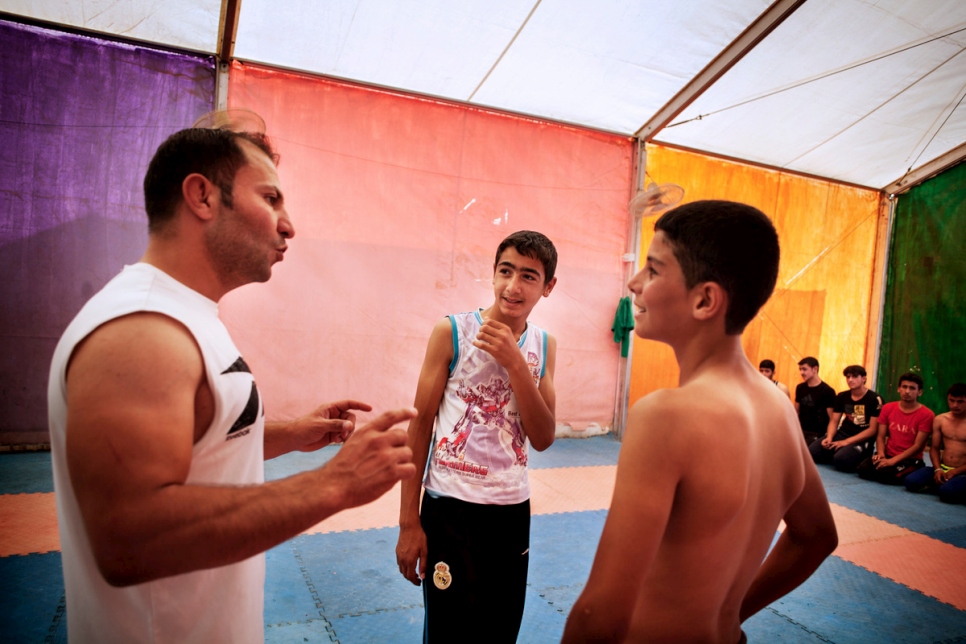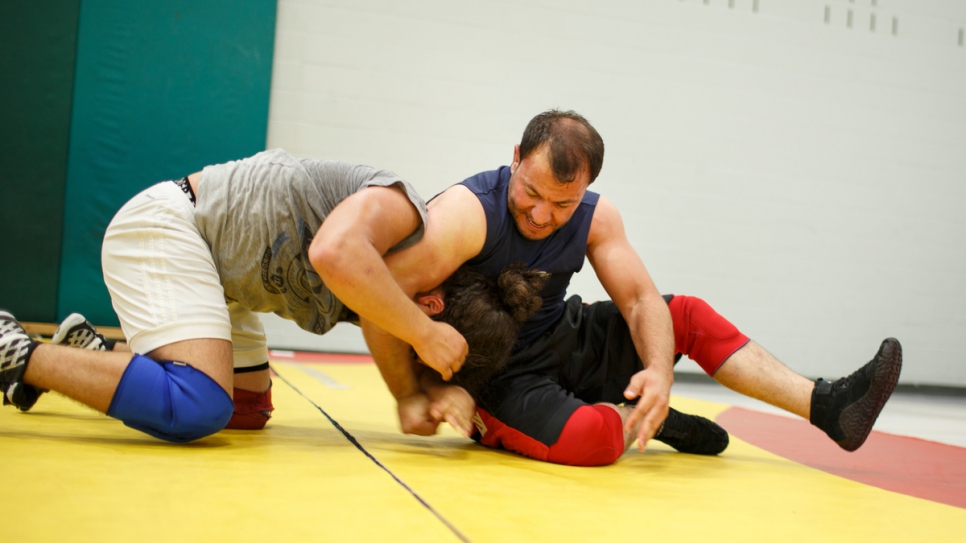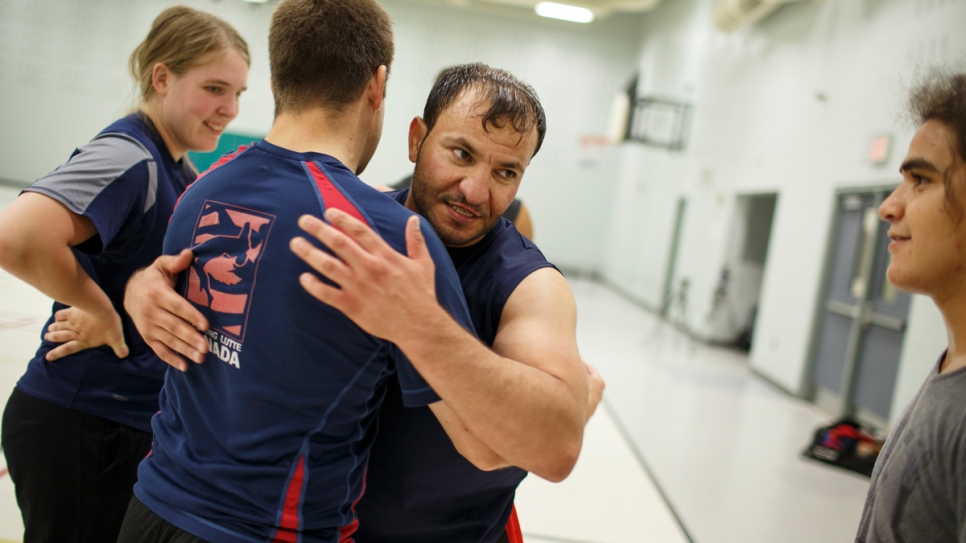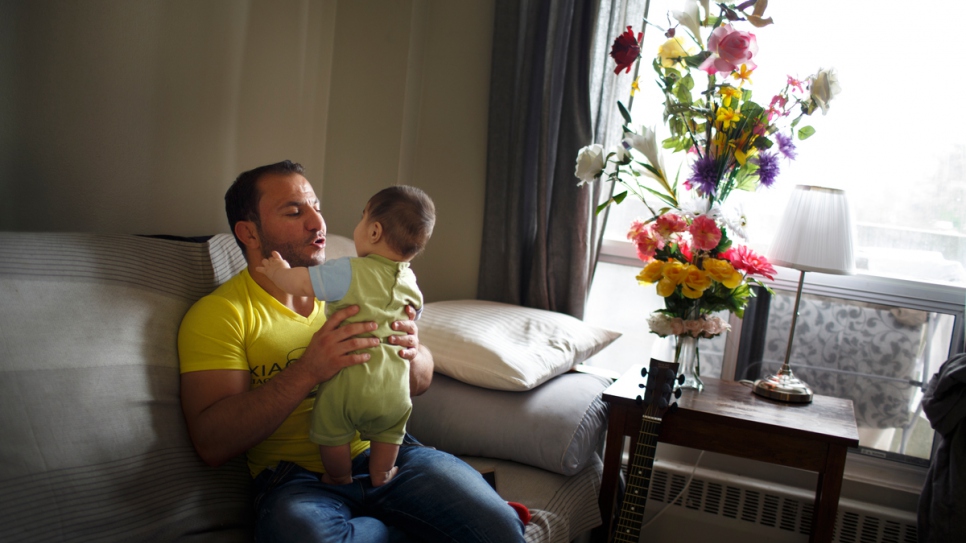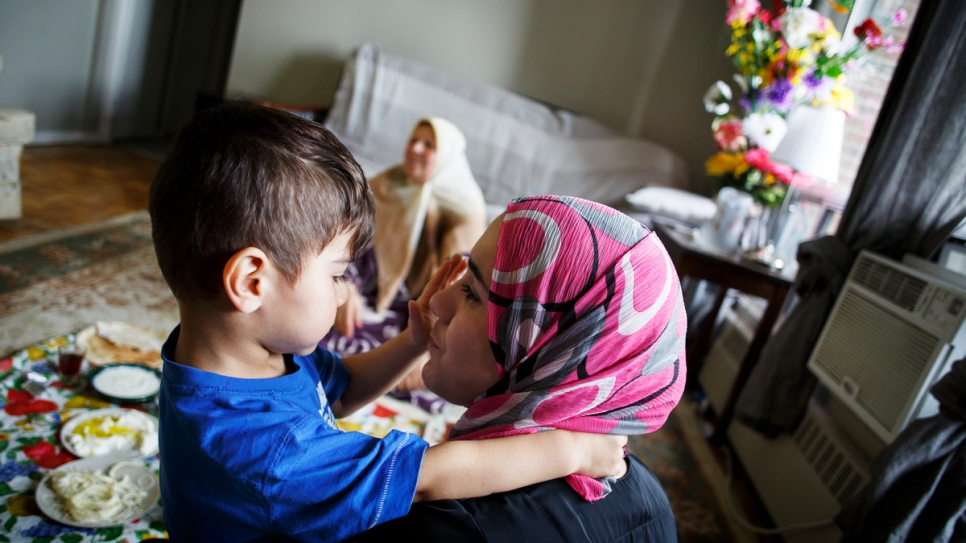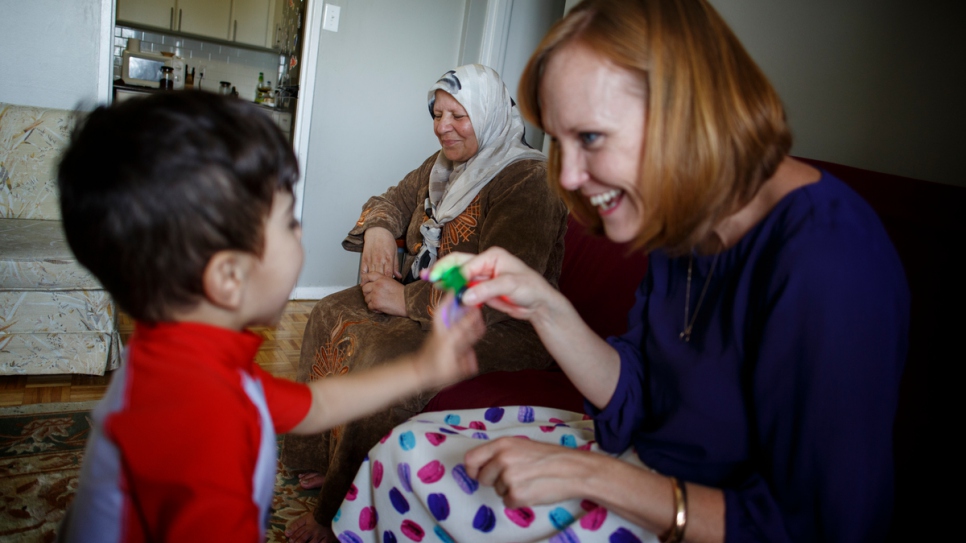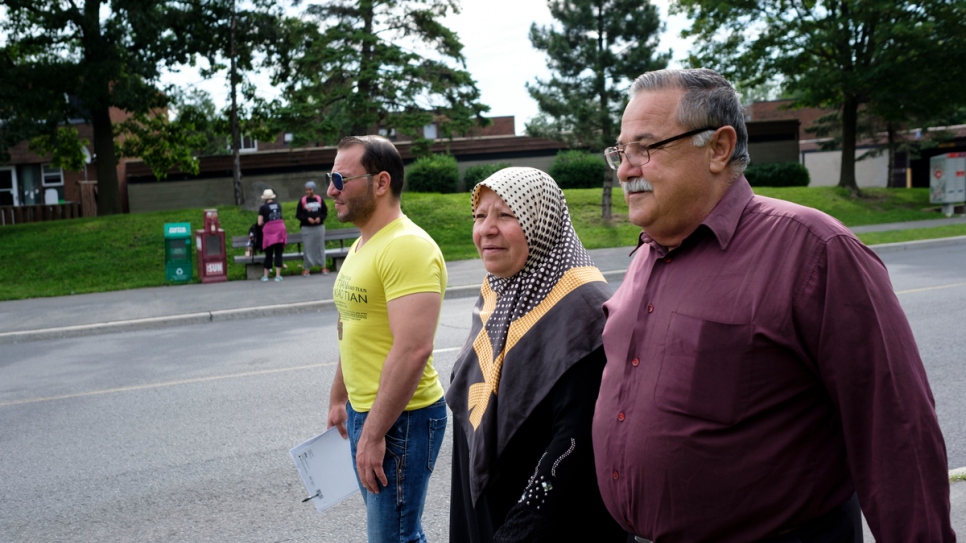Former Syrian wrestling champion ready for second round
After establishing a successful training programme in a refugee camp, a star wrestler from Syria is now changing lives in Canada.
The Al Karad family pose for a portrait with their Canadian sponsor.
© UNHCR/Annie Sakkab
Mohammed Al Karad, 35, is used to being the underdog. It’s part of the sport – in wrestling, competitors keep going even when defeat looks imminent.
But as a Syrian refugee and 12-time national champion, he’s also used to overcoming the odds, no matter how much they’re stacked against him.
Mohammed is determined to instill the same strength in students at the National Capital Wrestling Club, run out of St. Patrick’s High School in Ottawa. Now the Canadian capital’s only Arabic-speaking wrestling coach, he aims to produce nothing less than world champions.
Originally from Dara’a, Syria, Mohammed has been wrestling all his life. “It teaches you discipline,” he says. ”It teaches you how to keep pushing.”
“It teaches you discipline."
It was those skills he drew on when the war closed in on his family’s home.
He fled, along with his wife Asmaa and parents, to Jordan’s sprawling Za’atari refugee camp.
“We were living a normal life and, all of a sudden, we moved from a house to a tent,” he says.
While the structure of his previous life evaporated, Mohammed still had sport and the love of his wife, who gave birth to their first child in the camp. But, around him, he saw many other, younger people without direction and goals.
Committed to changing this, Mohammed started a wrestling programme. It began as a rag-tag group of three boys but soon he was approached by Mercy Corps, a humanitarian aid organization that offered him funding if he could develop a clear plan for the programme. For 15 days, he pored over strategies and ideas, before presenting them with a proposal. They loved it.
Eventually, this morphed into what he says was a training programme that coached more than 25,000 youth over a period of four years.
“We did not use medals to show achievements,” says Mohammed. “We did it to provide emotional and mental support – to add a dream or hope to young people’s lives.”
"I forgot all the pains and all the suffering that we had gone through."
In 2016, a group of eight friends in Ottawa heard about Mohammed and his young family, who by now had lived in Za’atari for four years. Led by Jessie Thompson, the group partnered with a local church and raised CAD$45,000 in only three weeks to sponsor the family for resettlement.
Finally, on a chilly November, Mohammed and his family arrived in Ottawa.
“After the suffering of a long journey, when I saw the people welcoming me at the airport, I forgot all the pains and all the suffering that we had gone through,” recalls Mohammed. “They started to applaud for us. I truly felt a great happiness.”
Once in Canada, Mohammed quickly sought out a local wrestling club, using the sport to reorient himself. Today, he constantly volunteers to help out other new arrivals.
“I lost the first round of my life when I had to leave my home,” says Mohammed. “But I’m ready to win the next round.”

